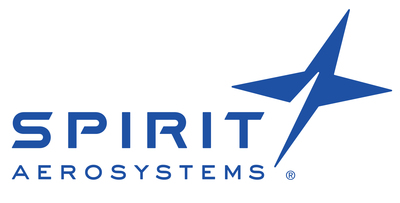Spirit AeroSystems Announces Furloughs
Rhea-AI Summary
Spirit AeroSystems (NYSE: SPR) has announced employee furloughs in response to the ongoing Boeing strike that began on September 13. Effective October 28, the company will implement a 21-day furlough for approximately 700 employees working on the 767 and 777 programs. This decision comes due to storage capacity for these units.
Additional cost-saving measures include a hiring freeze, travel restrictions, and overtime limitations. If the strike continues beyond November, Spirit may need to implement layoffs and additional furloughs due to financial pressures. CEO Pat Shanahan emphasized the difficulty of this decision and the company's commitment to supporting affected employees and their families.
Despite these challenges, Spirit AeroSystems remains committed to maintaining high quality and safety standards, and meeting its obligations to customers, regulators, and the aerospace industry.
Positive
- Spirit AeroSystems has built up a significant inventory buffer on the 767 and 777 programs
- The company is implementing cost-saving measures to address financial pressures
- Spirit remains committed to maintaining high quality and safety standards
Negative
- Furlough of approximately 700 employees for 21 days
- Potential layoffs and additional furloughs if the Boeing strike continues beyond November
- storage capacity for 767 and 777 units
- Implementation of hiring freeze, travel restrictions, and overtime limitations
News Market Reaction 1 Alert
On the day this news was published, SPR declined 1.49%, reflecting a mild negative market reaction.
Data tracked by StockTitan Argus on the day of publication.
CFO Irene Esteves shared the news with employees this morning.
Effective October 28, Spirit will implement a 21-day furlough for approximately 700 employees working on the 767 and 777 programs. These furloughs are in combination with a series of other cost savings measures, including a hiring freeze and travel and overtime restrictions.
The Company has built up a significant inventory buffer on the 767 and 777 programs and does not have room for additional storage.
If the strike continues beyond November, financial pressures will require the Company to implement additional cost savings measures including layoffs and additional furloughs.
"This difficult step was necessary given our limited storage capacity for 767 and 777 units," said Pat Shanahan, CEO of Spirit AeroSystems. "We recognize the impact this has on our valued teammates and their families, and we are committed to supporting them through this period."
Despite these challenges, Spirit remains committed to maintaining the highest quality and safety standards. The company will continue to meet its obligations to customers, regulators, and the aerospace industry.
Cautionary Statement Regarding Forward-Looking Statements
This communication includes "forward-looking statements" that involve many risks and uncertainties. Forward-looking statements generally can be identified by the use of forward-looking terminology such as "aim," "anticipate," "believe," "could," "continue," "ensure," "estimate," "expect," "forecast," "goal," "intend," "may," "might," "model," "objective," "outlook," "plan," "potential," "predict," "project," "seek," "should," "target," "will," "would," and other similar words, or phrases, or the negative thereof, unless the context requires otherwise. Forward-looking statements are based on circumstances as of the date on which the statements are made and they reflect management's current views with respect to future events and are subject to risks and uncertainties, both known and unknown. Actual results may vary materially from those anticipated in forward-looking statements. Investors should not place undue reliance on any forward-looking statements.
Important factors that could cause actual results to differ materially from those reflected in forward-looking statements include, but are not limited to, the following:
- the continued fragility of the global aerospace supply chain including our dependence on our suppliers, as well as the cost and availability of raw materials and purchased components, including increases in energy, freight, and other raw material costs as a result of inflation or continued global inflationary pressures;
- our ability and our suppliers' ability and willingness to meet stringent delivery (including quality and timeliness) standards and accommodate changes in the build rates or model mix of aircraft under existing contractual commitments, including the ability or willingness to staff appropriately or expend capital for current production volumes and anticipated production volume increases;
- our ability to maintain continuing, uninterrupted production at our manufacturing facilities and our suppliers' facilities;
- our ability, and our suppliers' ability, to attract and retain the skilled work force necessary for production and development in an extremely competitive market;
- the effect of economic conditions, including increases in interest rates and inflation, on the demand for our and our customers' products and services, on the industries and markets in which we operate in the
U.S. and globally, and on the global aerospace supply chain; - the general effect of geopolitical conditions, including
Russia's invasion ofUkraine and the resultant sanctions being imposed in response to the conflict, including any trade and transport restrictions; - the recent outbreak of war in
Israel and theGaza Strip and the potential for expansion of the conflict in the surrounding region, which may impact certain suppliers' ability to continue production or make timely deliveries of supplies required to produce and timely deliver our products, and may result in sanctions being imposed in response to the conflict, including trade and transport restrictions; - our relationships with the unions representing many of our employees, including our ability to successfully negotiate new agreements, and avoid labor disputes and work stoppages with respect to our union employees;
- the impact of significant health events, such as pandemics, contagions or other public health emergencies (including the COVID-19 pandemic) or fear of such events, on the demand for our and our customers' products and services, the industries and the markets in which we operate in the
U.S. and globally; - the timing and conditions surrounding the full worldwide return to service (including receiving the remaining regulatory approvals) of the B737 MAX, future demand for the aircraft, and any residual impacts of the B737 MAX grounding on production rates for the aircraft;
- our reliance on The Boeing Company ("Boeing") and Airbus SE and its affiliates for a significant portion of our revenues;
- the business condition and liquidity of our customers and their ability to satisfy their contractual obligations to us;
- the certainty of our backlog, including the ability of customers to cancel or delay orders prior to shipment on short notice, and the potential impact of regulatory approvals of existing and derivative models;
- our ability to accurately estimate and manage performance, cost, margins, and revenue under our contracts, and the potential for additional forward losses on new and maturing programs;
- our accounting estimates for revenue and costs for our contracts and potential changes to those estimates;
- our ability to continue to grow and diversify our business, execute our growth strategy, and secure replacement programs, including our ability to enter into profitable supply arrangements with additional customers;
- the outcome of product warranty or defective product claims and the impact settlement of such claims may have on our accounting assumptions;
- competitive conditions in the markets in which we operate, including in-sourcing by commercial aerospace original equipment manufacturers;
- our ability to successfully negotiate, or re-negotiate, future pricing under our supply agreements with Boeing, Airbus SE and its affiliates and other customers;
- the possibility that our cash flows may not be adequate for our additional capital needs;
- any reduction in our credit ratings;
- our ability to access the capital or credit markets to fund our liquidity needs, and the costs and terms of any additional financing;
- our ability to avoid or recover from cyber or other security attacks and other operations disruptions;
- legislative or regulatory actions, both domestic and foreign, impacting our operations, including the effect of changes in tax laws and rates and our ability to accurately calculate and estimate the effect of such changes;
- spending by the
U.S. and other governments on defense; - pension plan assumptions and future contributions;
- the effectiveness of our internal control over financial reporting;
- the outcome or impact of ongoing or future litigation, arbitration, claims, and regulatory actions or investigations, including our exposure to potential product liability and warranty claims;
- adequacy of our insurance coverage;
- our ability to continue selling certain receivables through the receivables financing programs;
- our ability to effectively integrate recent acquisitions, along with other acquisitions we pursue, and generate synergies and other cost savings therefrom, while avoiding unexpected costs, charges, expenses, and adverse changes to business relationships and business disruptions; and
- the risks of doing business internationally, including fluctuations in foreign currency exchange rates, impositions of tariffs or embargoes, trade restrictions, compliance with foreign laws, and domestic and foreign government policies; and
- risks and uncertainties relating to the proposed acquisition of Spirit AeroSystems Holdings, Inc. ("Spirit" and, together with its consolidated subsidiaries, the "Company") by Boeing (the "Merger") pursuant to Spirit's agreement and plan of merger with Boeing (the "Merger Agreement") and the transactions contemplated by Spirit AeroSystems, Inc.'s binding term sheet with Airbus SE (the "Airbus Business Disposition" and, together with the Merger, the "Transactions"), including, among others, the possible inability of the Company to negotiate and enter into definitive agreements with Airbus SE and its affiliates with respect to the Airbus Business Disposition; the possible inability of the parties to a Transaction to obtain the required regulatory approvals for such Transaction and to satisfy the other conditions to the closing of such Transaction (including, in the case of the Merger, approval of the Merger Agreement by Spirit stockholders) on a timely basis or at all; the possible occurrence of events that may give rise to a right of one or more of the parties to the Merger Agreement to terminate the Merger Agreement; the risk that the Merger Agreement is terminated under circumstances requiring Spirit to pay a termination fee; the risk that Spirit is unable to consummate the Transactions on a timely basis or at all for any reason, including, without limitation, failure to obtain the required regulatory approvals, failure to obtain Spirit stockholder approval of the Merger Agreement or failure to satisfy other conditions the closing of either of the Transactions; the potential for the pendency of the Transactions or any failure to consummate the Transactions to adversely affect the market price of Spirit common stock or the Company's financial performance or business relationships; risks relating to the value of Boeing common stock to be issued in the Merger; the possibility that the anticipated benefits of the Transactions cannot be realized in full or at all or may take longer to realize than expected; the possibility that costs or difficulties related to the integration of the Company's operations with those of Boeing will be greater than expected; risks relating to significant transaction costs; the intended or actual tax treatment of the Transactions; litigation or other legal or regulatory action relating to the Transactions or otherwise relating to the Company or other parties to the Transactions instituted against the Company or such other parties or Spirit's or such other parties' respective directors and officers and the effect of the outcome of any such litigation or other legal or regulatory action; risks associated with contracts containing provisions that may be triggered by the Transactions; potential difficulties in retaining and hiring key personnel or arising in connection with labor disputes during the pendency of or following the Transactions; the risk of other Transaction-related disruptions to the business, including business plans and operations, of the Company; the potential for the Transactions to divert the time and attention of management from ongoing business operations; the potential for contractual restrictions under the agreements relating to the Transactions to adversely affect the Company's ability to pursue other business opportunities or strategic transactions; and competitors' responses to the Transactions.
These factors are not exhaustive, and it is not possible for us to predict all factors that could cause actual results to differ materially from those reflected in our forward-looking statements. These factors speak only as of the date hereof, and new factors may emerge or changes to the foregoing factors may occur that could impact our business. As with any projection or forecast, these statements are inherently susceptible to uncertainty and changes in circumstances. Except to the extent required by law, we undertake no obligation to, and expressly disclaim any obligation to, publicly update or revise any forward-looking statements, whether as a result of new information, future events, or otherwise. Refer to the sections captioned "Risk Factors" in Spirit's Annual Report on Form 10-K for the fiscal year ended December 31, 2023, filed with the Securities and Exchange Commission (the "SEC") on February 22, 2024, and in Spirit's Quarterly Report on Form 10-Q for the quarterly period ended June 27, 2024, filed with the SEC on August 5, 2024, for a more complete discussion of the factors described above and other factors that may affect the Company's business or the Transactions.
![]() View original content to download multimedia:https://www.prnewswire.com/news-releases/spirit-aerosystems-announces-furloughs-302280390.html
View original content to download multimedia:https://www.prnewswire.com/news-releases/spirit-aerosystems-announces-furloughs-302280390.html
SOURCE Spirit Aerosystems








